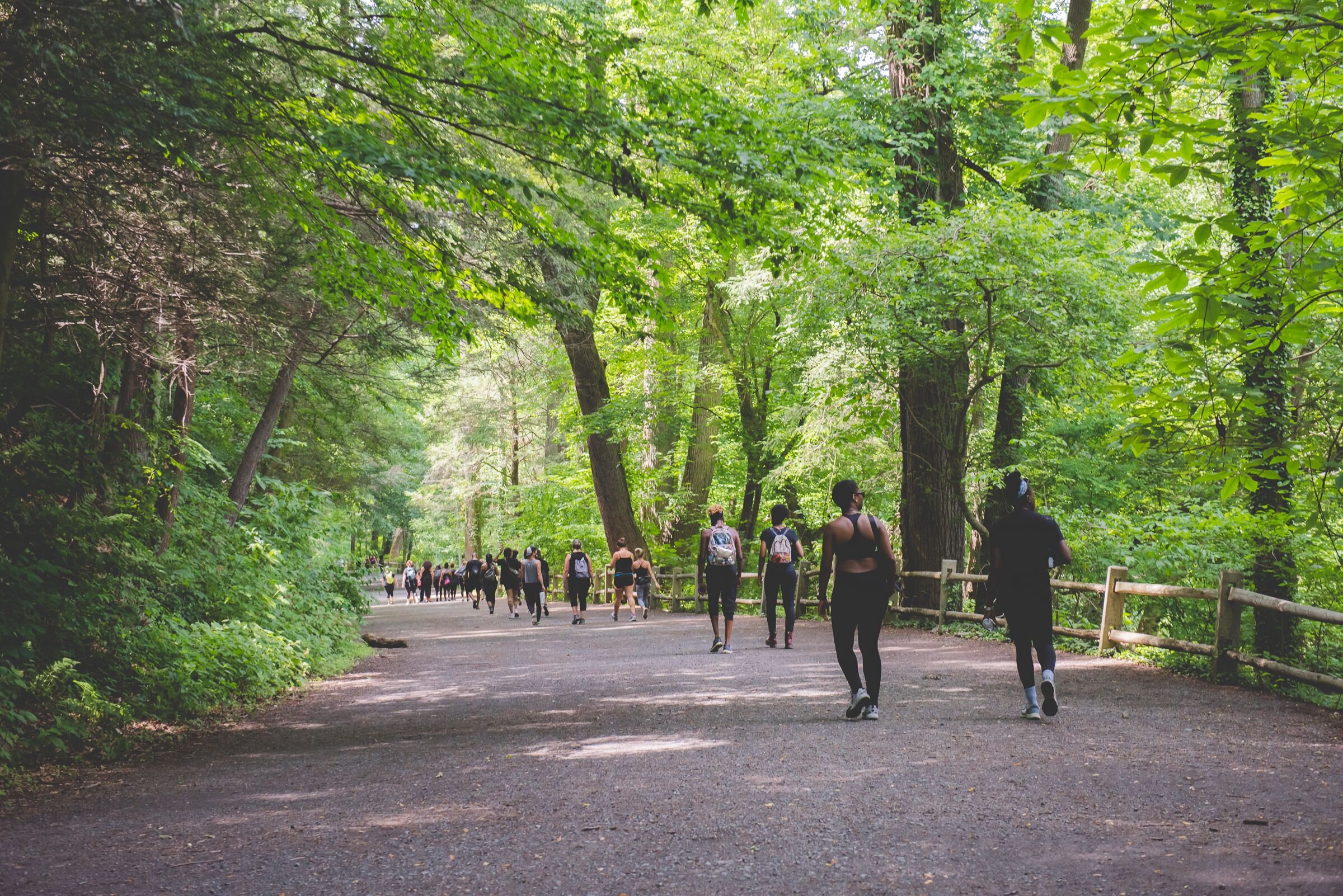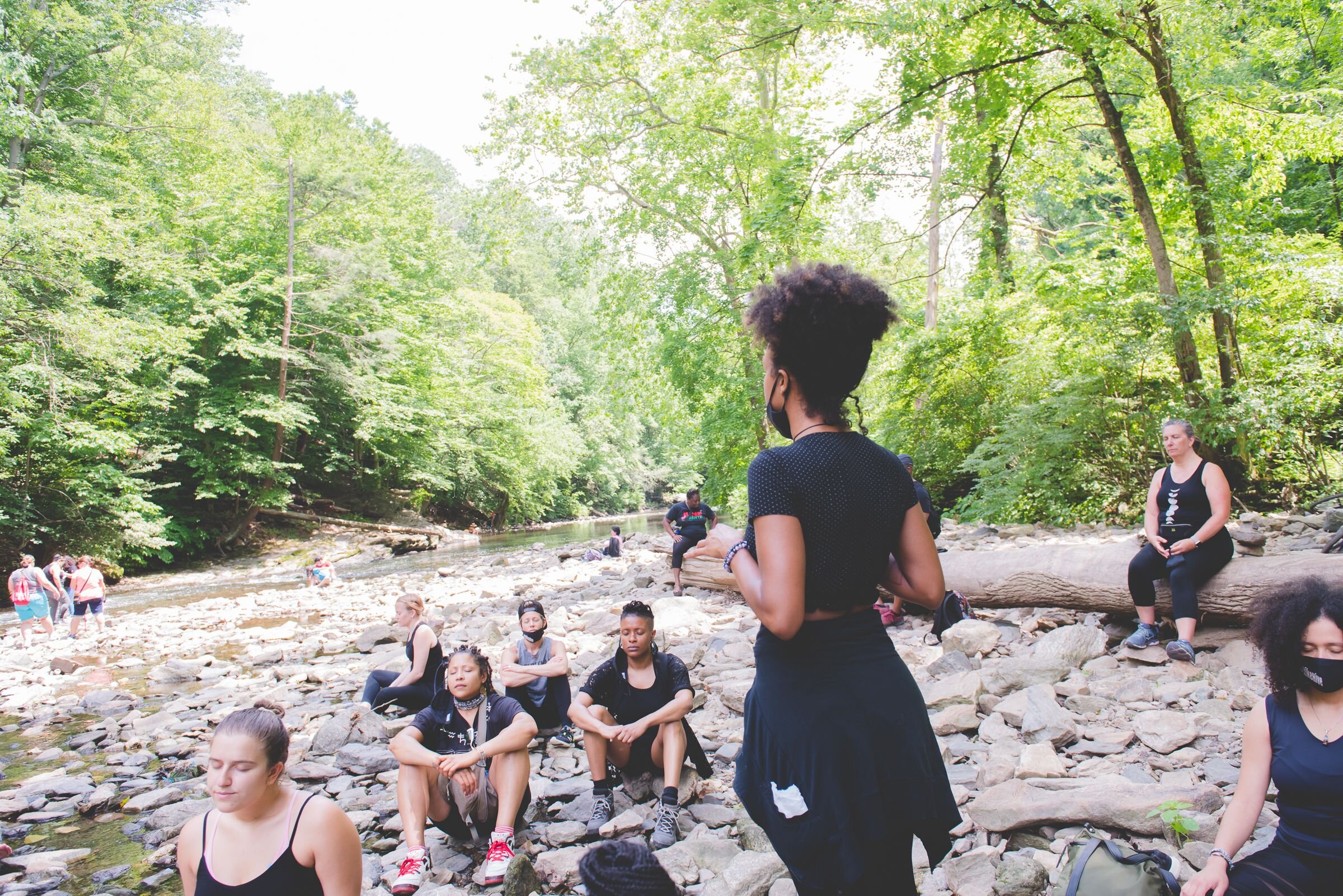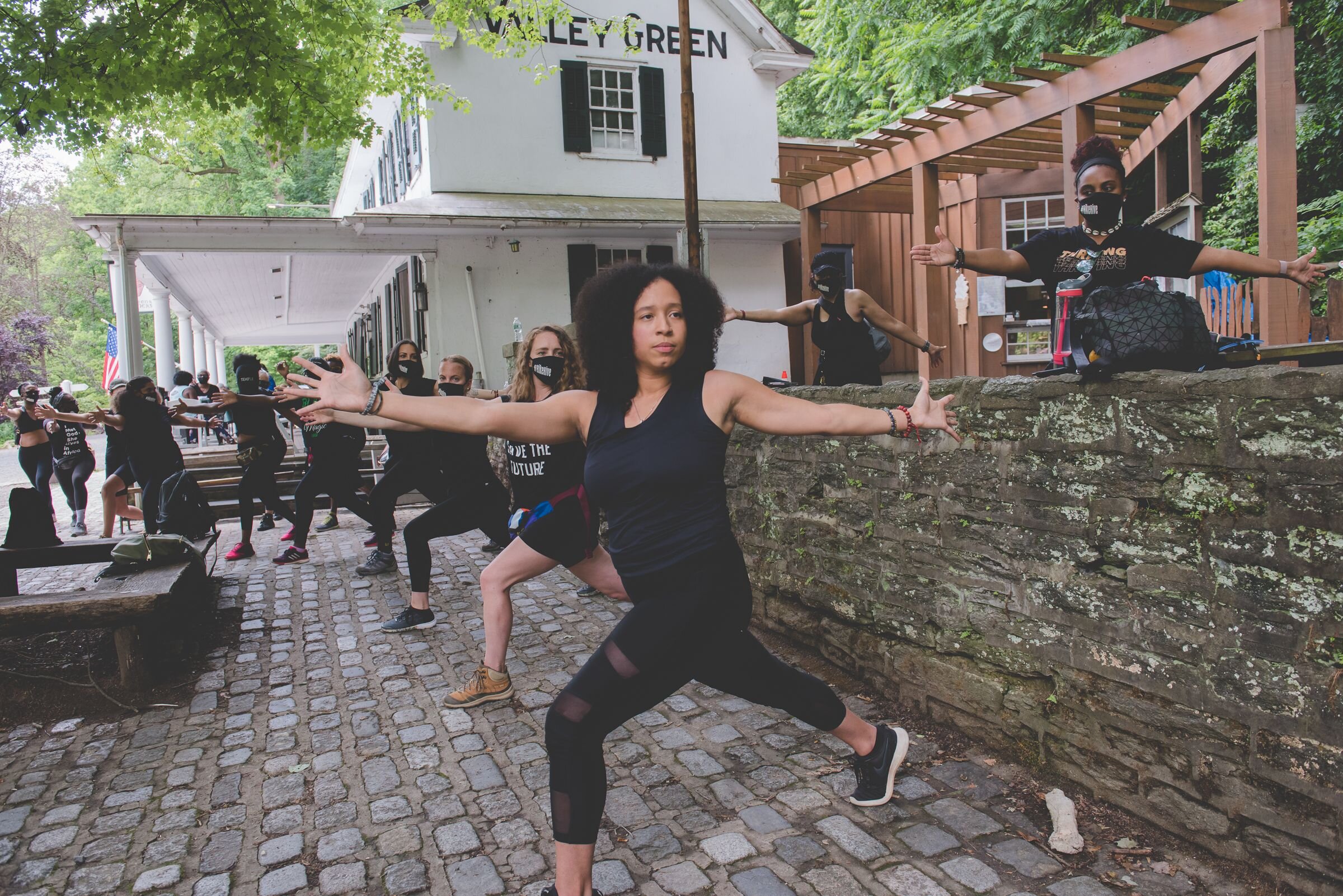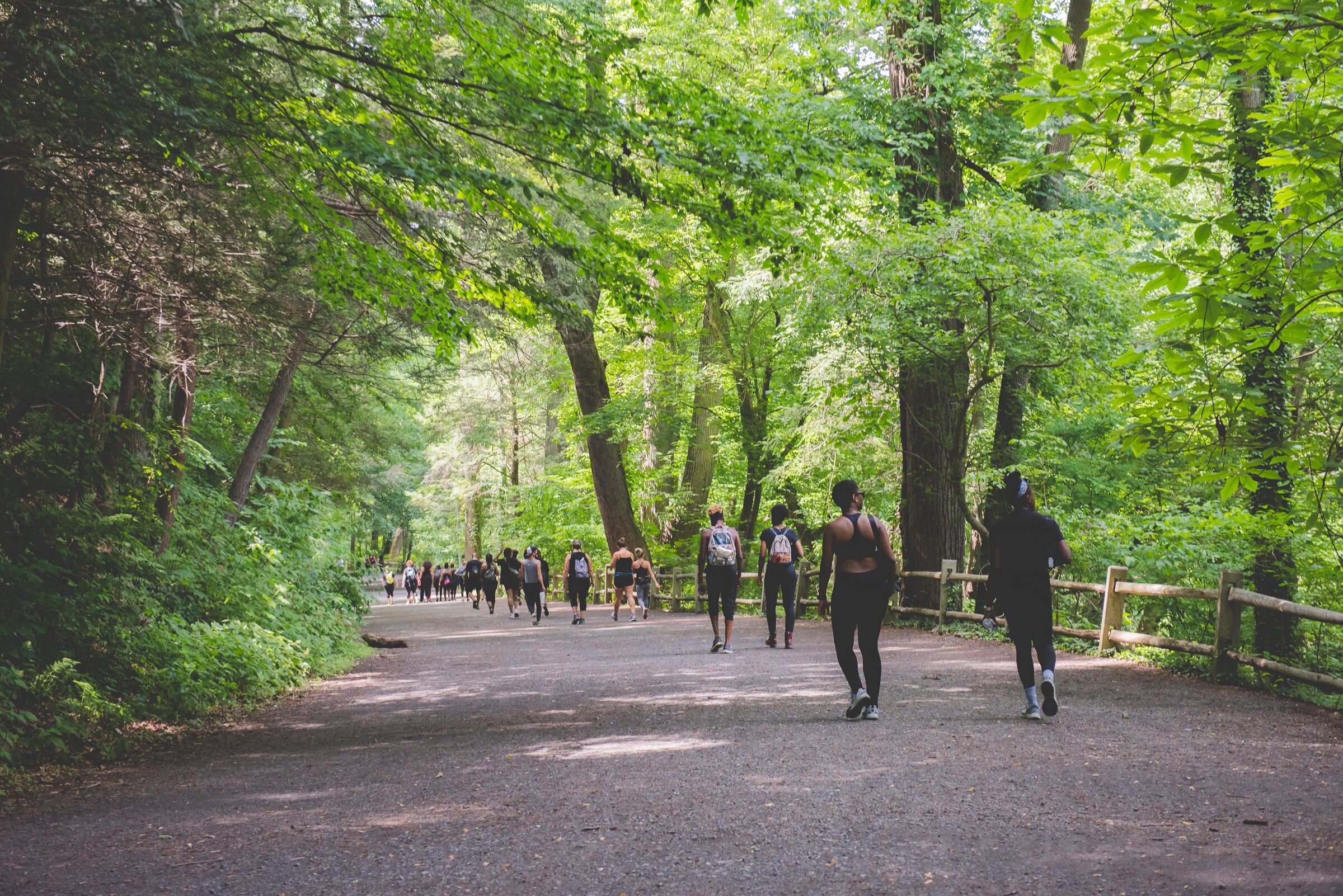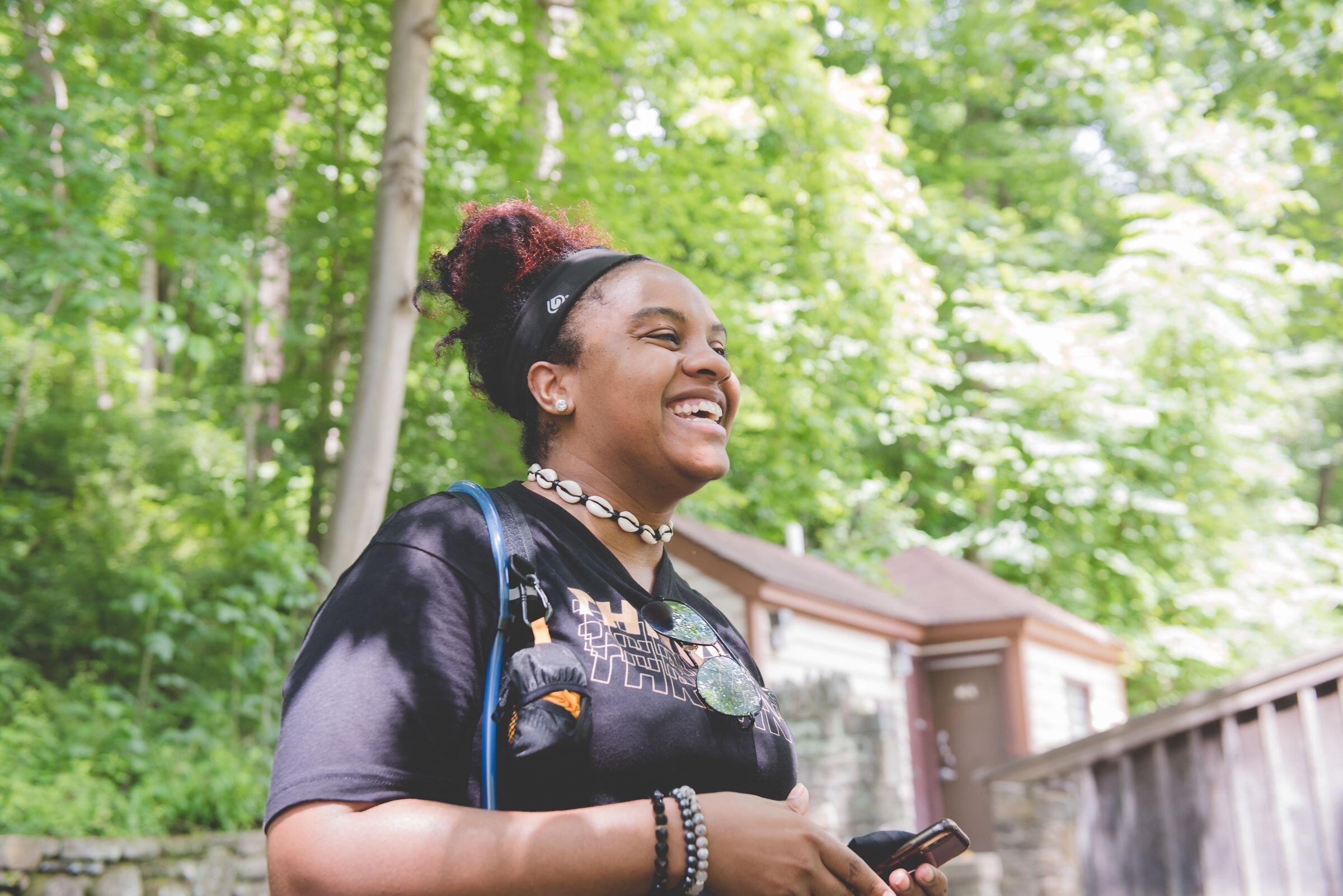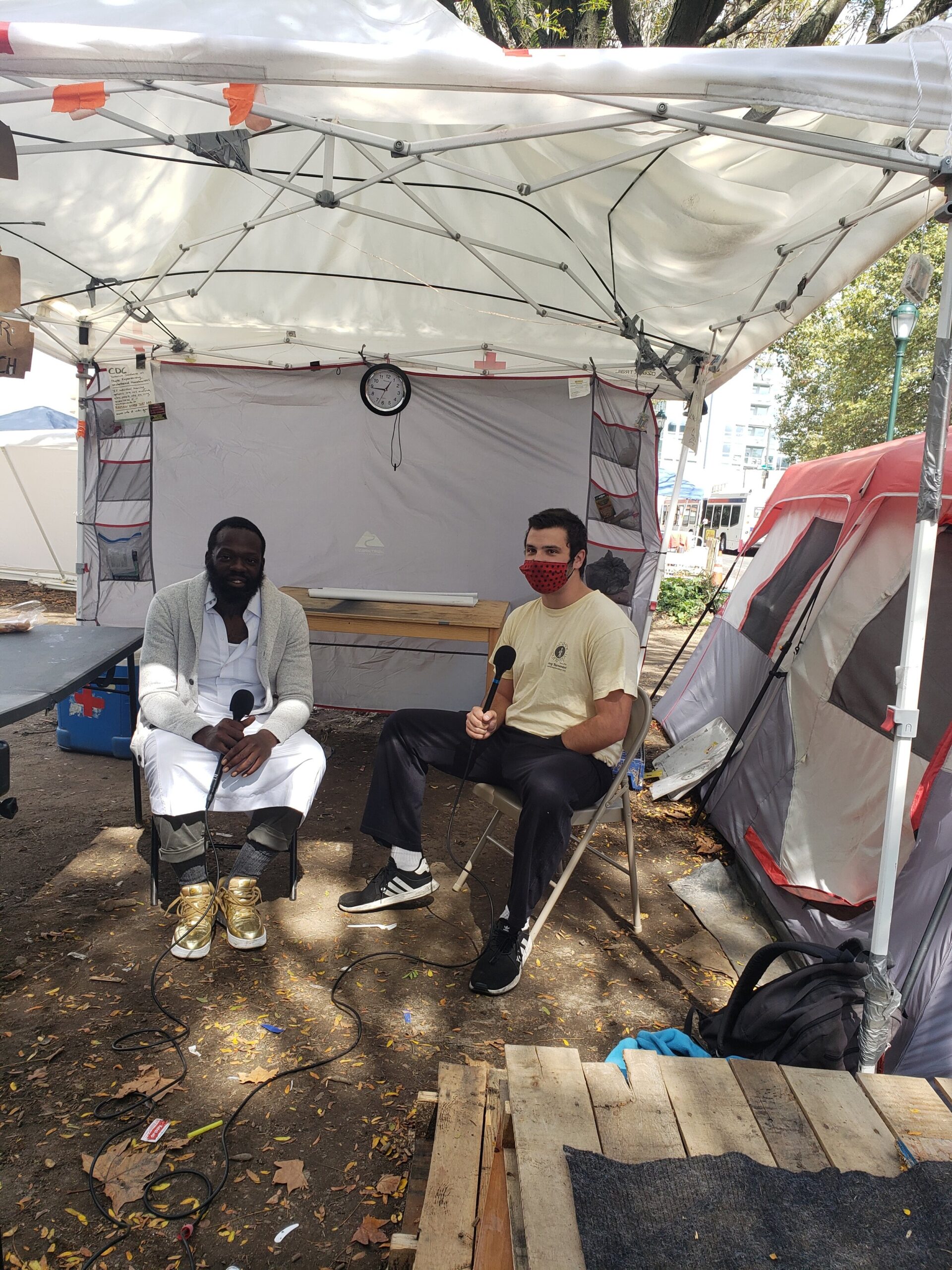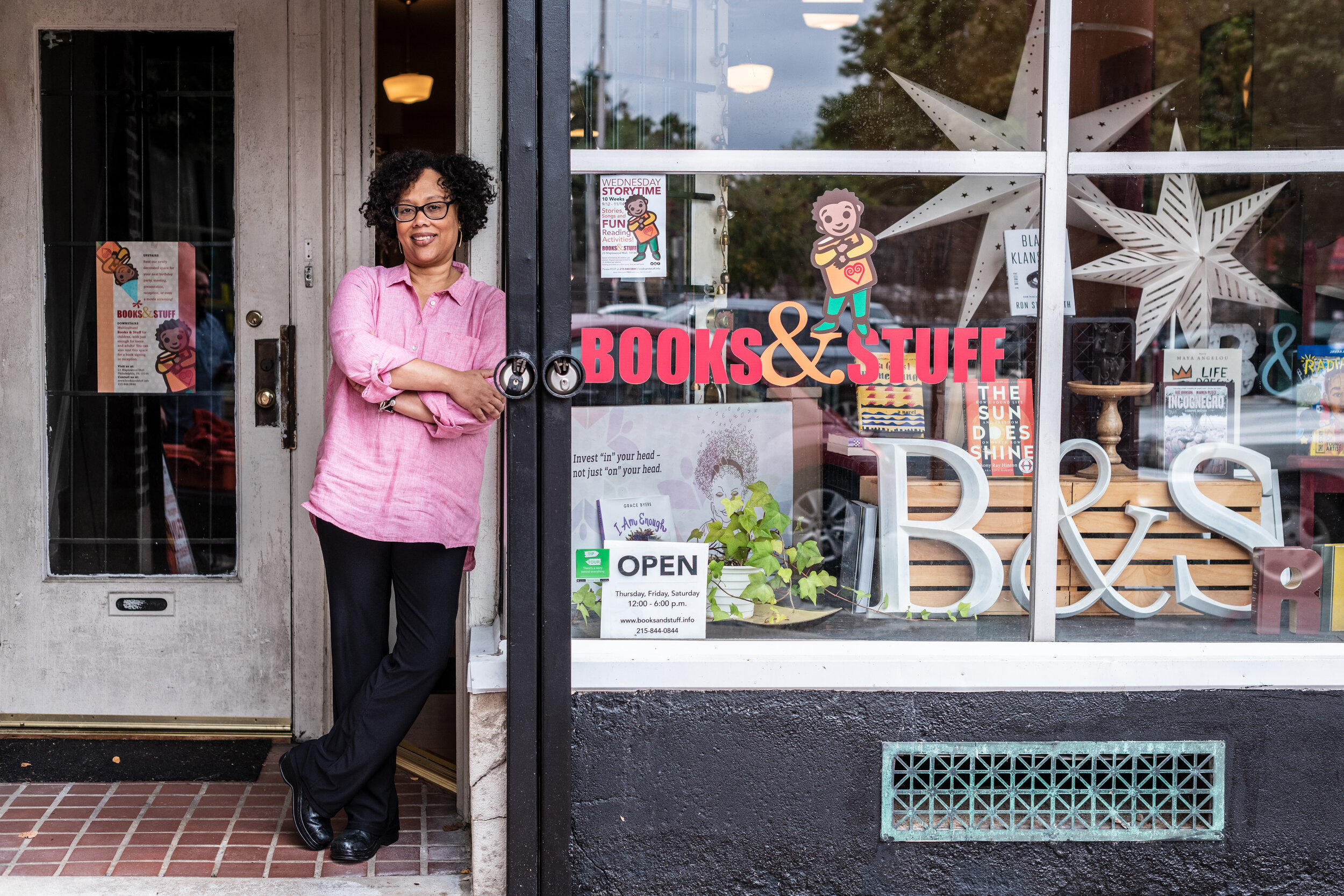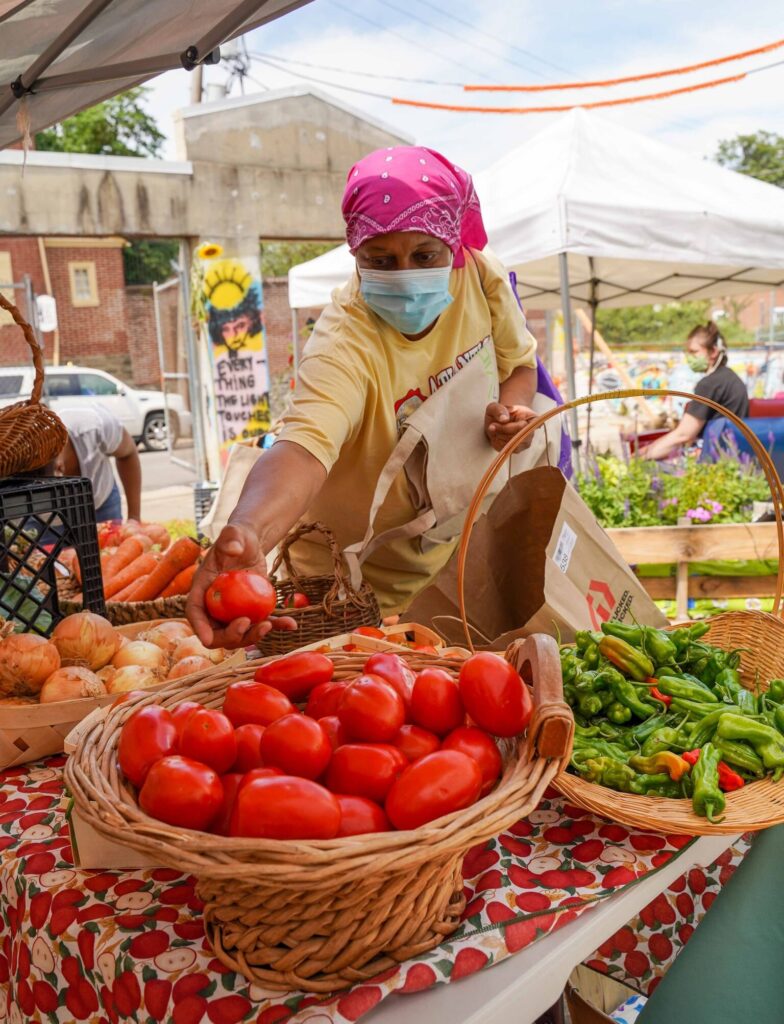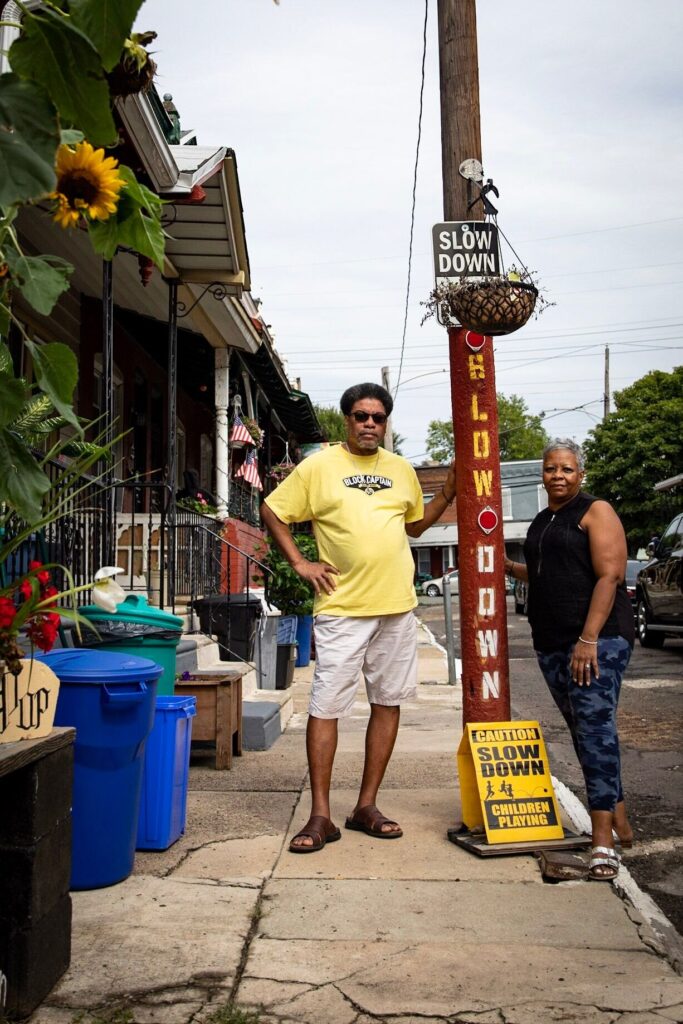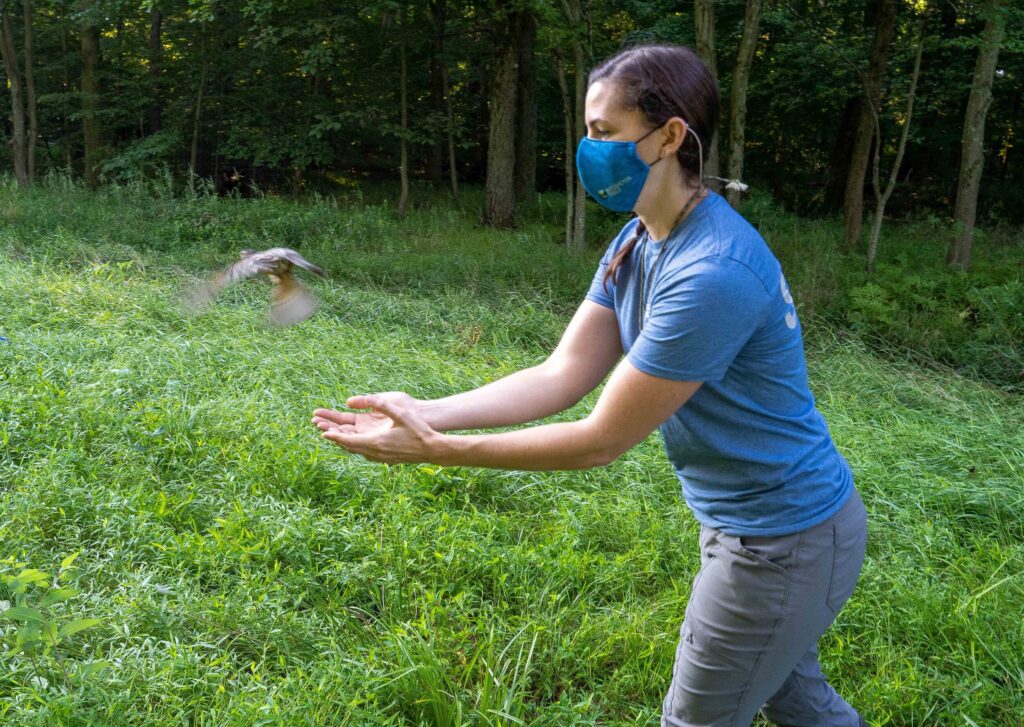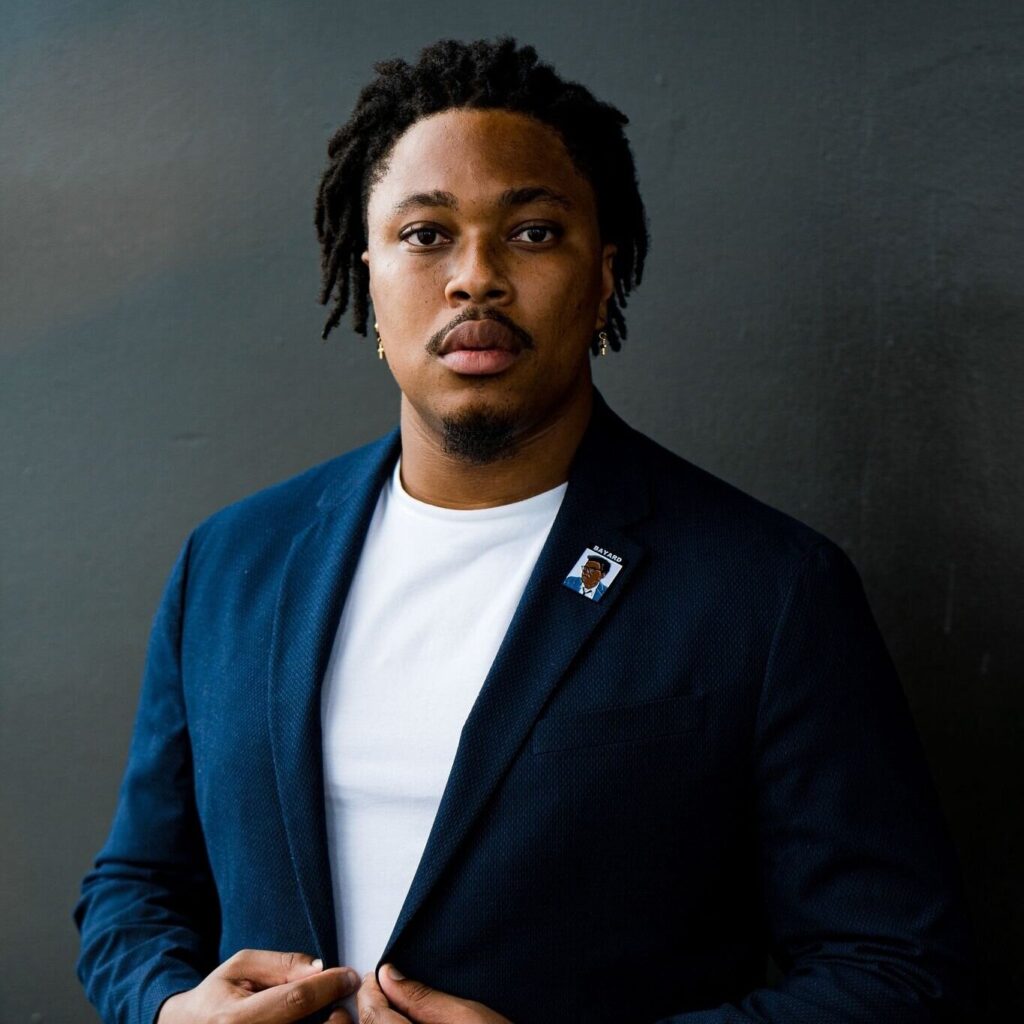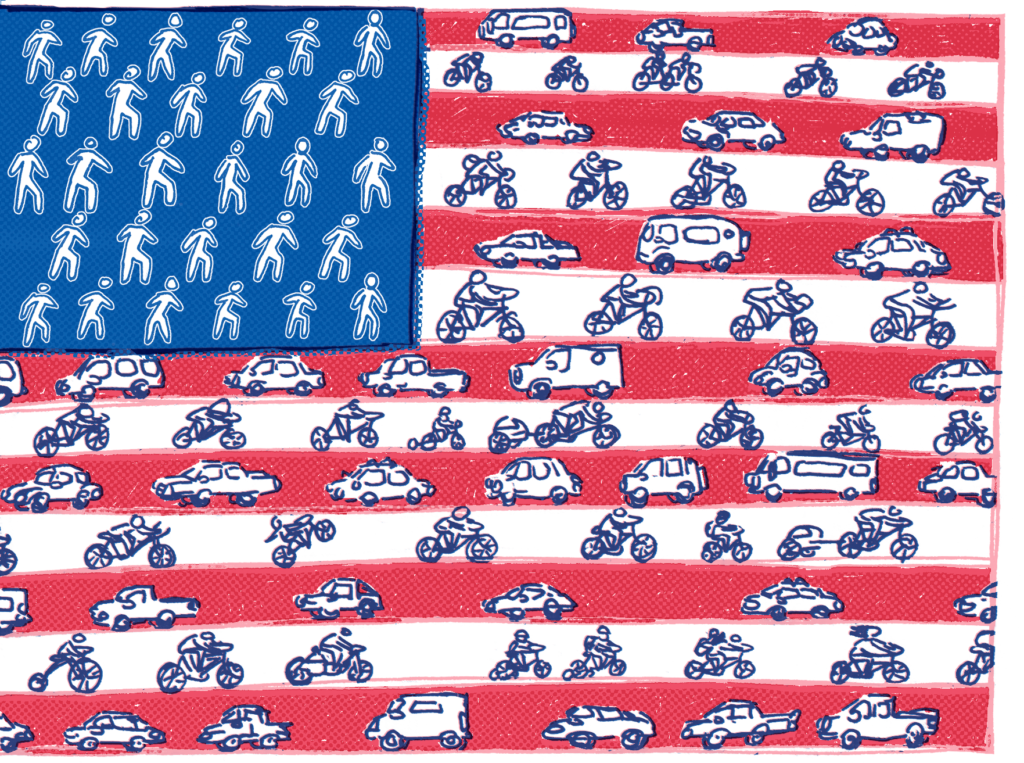During a recent Hike + Heal meetup on the Wissahickon Creek, one member shared her reason for coming on a hike: she had just moved to Philadelphia during the COVID-19 pandemic and was looking for a community of women.
Hike + Heal founder Brandi Aulston was impressed by the woman’s search for community during such an isolating time.
“That takes initiative,” Aulston says. “She could easily have said, ‘Woe is me.’ She said, ‘Ok, what’s around here?’ ”
Even as stay-at-home orders have loosened in Philadelphia, meeting new people has continued to be a challenging feat. Aulston has seen interest in Hike + Heal grow exponentially in the past few months. Before each biweekly hike, about 60 women sign up online. In order to enforce social distancing, Aulston has had to cap attendance at about 20 participants.
“You don’t have to explain yourself. Somebody can already understand and relate.”
–Marie-Renee Malvoisin
“I’m very happy that what I do is accessible during a pandemic,” Aulston says. She believes social distancing and mask-wearing have had no effect on everyone’s ability to engage with each other.
“[Everyone is] still able to connect even though you only see half of a person’s face,” Aulston says.
Aulston has made a few adjustments to the typical Hike + Heal meetups during the pandemic. She moved her Hopeful Hour and Healing Hour meetups online, both of which give women a chance to work through current emotions and life experiences by utilizing mindfulness exercises, including meditation, breathing exercises and journaling.
For Hike + Heal Hive member Marie-Renee Malvoisin, the Healing Hour meetups have served as “a safe space where people feel like they can be heard.” The virtual meetups have “helped me be present and know that I am not alone,” Malvoisin says. “You don’t have to explain yourself. Somebody can already understand and relate.”
The virtual setting of the Healing Hours has also opened the events up to women living far from Philadelphia. Malvoisin has seen women from states as far away as Colorado joining the meetups.
For Hive members who want to dive deeper into meditation and mindfulness, Aulston also offers Clarity Chats and Virtual Healing Hours. During Clarity Chats, women talk to Aulston about something in their lives they would like to change, which might include moving on from a past relationship, healing from trauma or changing their life outlook. After the initial chat, Aulston sets up a consultation to determine the time frame that would be best for achieving specific goals.
In addition to moving different events online, Aulston has made other adjustments to the hikes, all of which she hosts on the Wissahickon Creek. Before the pandemic began, at the midpoint of each hike, members did partner stretching. Aulston has halted these stretches and has instead introduced new activities.
“I’m a very touchy-feely person,” Hive member Liz Fever says. “Being able to connect with people during our stretching is something I’ll miss, but I look forward to a time when we can do it again.”
On a recent hike, each Hive member wrote down something they wanted to let go of on a piece of water-soluble paper. They then released the paper into the creek to symbolize letting go of negative thoughts and life challenges.
Fever first met Aulston last summer at a photoshoot for the company Girls Gone Happy, which creates card decks designed to prompt conversation and introspection. The decks focus on a variety of topics, including motherhood, money and loss.
Aulston came across the cards on Instagram and reached out to the founder of Girls Gone Happy, Justine Haemmerli, to express her interest in becoming a brand ambassador. Aulston mainly uses the cards during Healing Hours and occasionally on hikes.
While at the photoshoot, Aulston told Fever about Hike + Heal. Aulston founded Hike + Heal in March 2019 and held her first hike in April.
Fever came on her first hike in September 2019 and immediately admired Aulston’s approach to exercise and wellness. Rather than focusing on aesthetics or treating exercise as a means to an end, Aulston’s hikes instead emphasize mindfulness and connection with nature.
“As a woman on the smaller end of a plus-sized body, exercise always felt like a punishment. Exercise had always been something I would do to change my body,” Fever says. “[In] the wellness industry, you see the same type of person over and over again. Hike + Heal is for all types of women. Everyone is represented and there is something attainable for every fitness level.”
Aulston noticed the lack of diversity in the wellness industry while at Temple University. She had always been active as a child, playing soccer, cheerleading and other sports. In college, she took as many dance and movement classes she could as a biology major. However, once Aulston ventured off campus and took classes at yoga studios, she felt out of place. She noticed that studios and gyms had a lack of diversity.
After graduation, Aulston taught Zumba and even volunteered as a fitness instructor at her job’s gym. She focused on making exercise accessible and offering modifications, but over time she began to lose interest and started to search for something new. At age 29, Aulston hiked along the Wissahickon Creek for the first time. Aulston was surprised she had never visited the creek before, despite being born and raised in Philadelphia. After spending time on the trails, Aulston knew it was the perfect place to start a wellness group.
“I wanted something different that doesn’t require hiking gear. You just show up and move,” Aulston says.
Aulston posted about Hike + Heal on Instagram and Facebook in the spring of 2019 and word quickly spread. Many women who joined the group had also never been on the Wissahickon Creek before, but they quickly became comfortable with navigating different trails, even returning to the creek with friends and family. Aulston frequently gets texts from Hive members asking her for directions to different trails so they can revisit them on their own, which she is always happy to share.
“The goal is to tackle the Wissahickon,” Aulston says. Aulston believes that by introducing others to the creek, she is helping to show that hiking is available to everyone—that it is an inclusive activity. Her focus on inclusivity has set Hike + Heal apart.
“I didn’t know a hiking group that was headed by a Black woman, another woman representing my background,” Malvoisin says. “It helped me to see that.”
The members of Hike + Heal are made up of a wide variety of ages, races and ethnicities, which Aulston has always championed. She regularly posts pictures of the Hive members online to showcase the diversity in the group. Aulston chooses not to post many of her own pictures on the Hike + Heal social media accounts because she believes the women of the Hive are the focus, rather than herself. Often, women who show up for their first hike with Hike + Heal don’t know that Aulston is the founder. She makes sure to introduce herself, but she also keeps the focus of Hike + Heal on the larger group.
“I didn’t really put myself on the page. I wanted to create a community,” Aulston says.
Aulston has watched the friendships formed during hikes and meetups take shape quickly, both in person and through social media. Practicing mindfulness, exercising together and sharing the outdoors helps forge strong bonds. In fact, she believes it is impossible not to make a connection at a Hike + Heal event.
“When you come, you’re going to leave with a new friend,” Aulston says.

